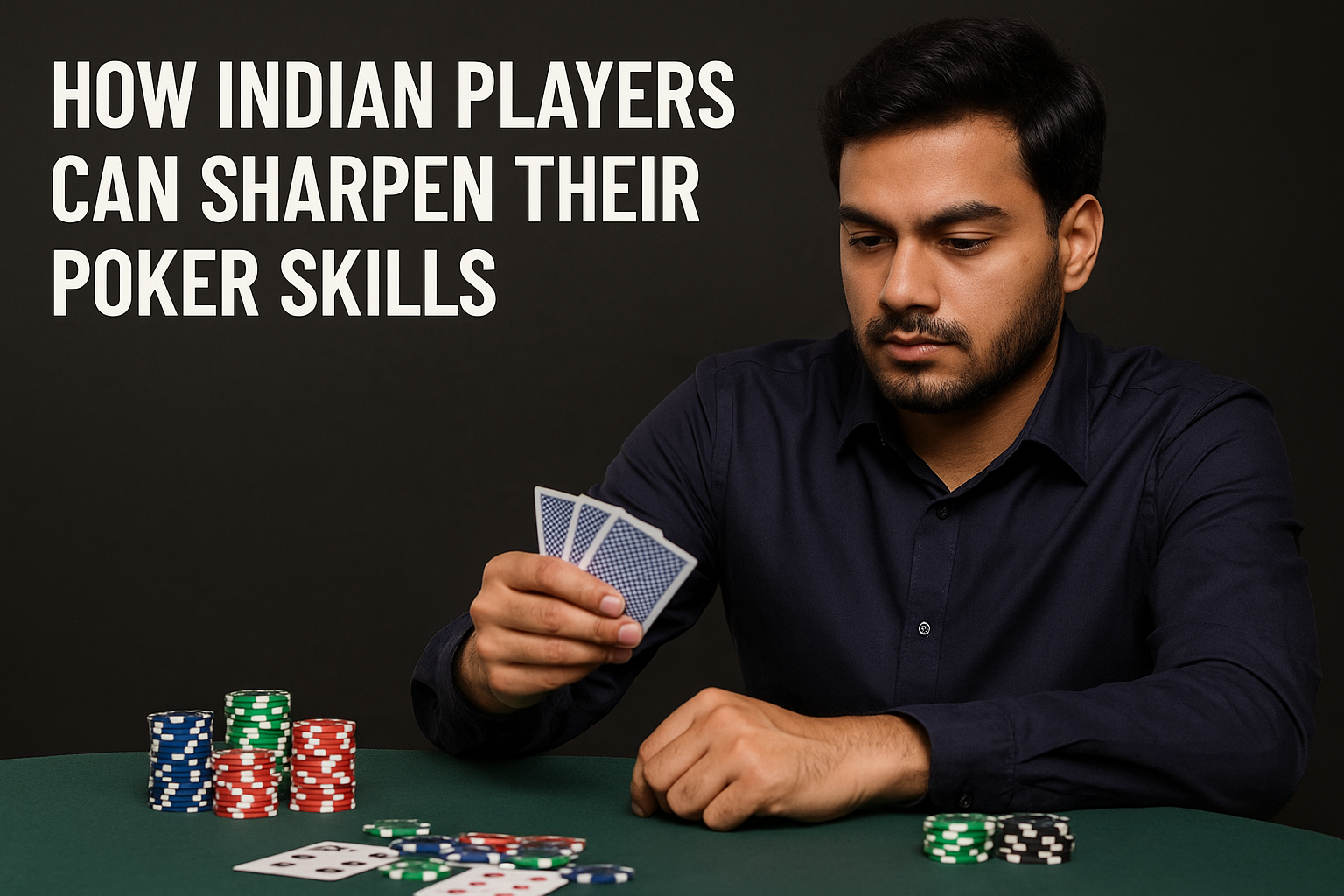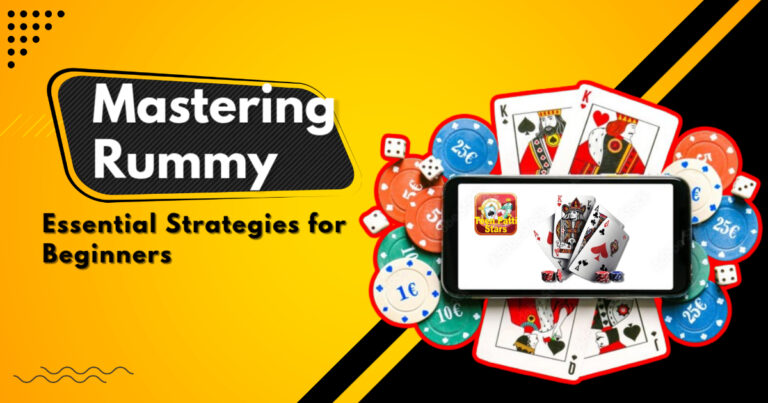How Indian Players Can Sharpen Their Poker Skills
Poker has rapidly evolved in India, transitioning from a niche hobby to a recognized mind sport, with thousands of players competing online and in live tournaments. As the game grows in popularity, many Indian players seek ways to sharpen their poker skills and climb the ranks, whether for professional success or recreational improvement. Fortunately, the journey from novice to expert in the Best Rummy games involves strategies that can be systematically developed. This article explores the most effective ways Indian players can hone their poker abilities and become formidable opponents at the tables.

1. Understand the Fundamentals Thoroughly
Before diving into complex strategies, every aspiring poker player must have a solid grasp of the game’s fundamentals. This includes understanding hand rankings, the importance of position, pot odds, betting structures, and basic terminology. For Indian players new to poker, numerous online resources, video tutorials, and beginner courses—such as those offered by platforms like Teen Patti Stars—are available in regional languages, making learning more accessible.
Platforms like PokerBaazi, Adda52, and Spartan Poker offer free-to-play tables and beginner-friendly guides tailored to Indian users. Taking advantage of these resources helps create a strong foundation before advancing to higher-stakes games.
2. Practice Consistently Online
The rise of online poker in India has opened up a world of opportunities for Indian players to engage in consistent practice. Online poker rooms allow players to log countless hands in a short time, exposing them to a wide range of scenarios. Unlike traditional live games, online poker offers the ability to multi-table, fast-fold, and participate in varied formats like tournaments, Sit & Go’s, and cash games.
Indian players can benefit from micro-stakes games to build experience with minimal financial risk. Over time, this experience sharpens decision-making, improves pattern recognition, and builds confidence—all essential for long-term success.
3. Study Strategy and Game Theory
To move beyond basic competence, players must delve into strategic poker theory to truly understand how Poker works. Topics such as range balancing, expected value (EV), ICM (Independent Chip Model), and Game Theory Optimal (GTO) play are key for advanced performance. Fortunately, there are many books and online resources tailored for Indian audiences, such as:
- Modern Poker Theory by Michael Acevedo
- The Mental Game of Poker by Jared Tendler
- YouTube channels like Bencb789, Jonathan Little, and Raise Your Edge
Additionally, websites like Run It Once, Upswing Poker, and PokerStrategy.com offer comprehensive courses and forums where Indian players can interact with a global community.
4. Review and Analyze Your Hands
Self-review is one of the most effective methods for improvement. By going over previously played hands, players can identify mistakes, missed value opportunities, or leaks in their game. Tools such as PokerTracker, Hold’em Manager, and Hand2Note provide in-depth statistical analysis, allowing players to spot trends in their behavior.
Many Indian online poker platforms now allow hand histories to be downloaded or reviewed directly within the app. Players can also participate in forums like India Poker Forum or 2+2 Forums to get feedback on tricky hands from more experienced players.
5. Join Poker Communities and Coaching Groups
The poker community in India is growing and increasingly connected through Telegram groups, Discord servers, and social media. Engaging with this community through various Poker sites allows players to discuss strategies, get updates on live and online events, and receive mentorship.
Some platforms even host coaching stables where talented players receive training in exchange for a share of their profits. Examples include PokerGuru Staking, AceJack Coaching, and Poker Bootcamp India. Being part of a team or study group not only improves technical skills but also provides moral support and accountability.

6. Work on Mental Toughness and Discipline
Poker is as much a psychological game as it is mathematical. Success requires emotional control, patience, and mental stamina. One of the biggest hurdles Indian players face is dealing with “tilt” — emotional reactions that lead to poor decision-making.
Players should focus on improving mental resilience through practices such as:
- Meditation and mindfulness, to maintain focus
- Journaling, to track emotional triggers
- Fitness and nutrition, to boost stamina during long sessions
Books like The Mental Game of Poker and online courses on performance psychology offer valuable tools for building this internal strength.
7. Transition to Live Play Strategically
While online poker offers volume, live poker brings unique challenges and rewards. Reading physical tells, adapting to slower play, and managing the social aspect of live games are skills that need to be cultivated separately. Indian players can sharpen these abilities by participating in local poker rooms or major tournaments like:
- India Poker Championship (IPC)
- Deltin Poker Tournament (DPT)
- Baazi Poker Tour (BPT)
These events offer structured environments with professional dealers, rule enforcement, and competitive players. Live play also improves networking, which can open doors to sponsorships and staking deals.
8. Stay Updated With Legal and Regulatory Aspects
The legal landscape of poker in India is complex and varies by state. While poker is considered a skill-based game and is legally played online in many regions, certain states still classify it under gambling. Indian players must remain informed about the legalities in their area and ensure they use licensed and regulated platforms.
Staying updated on regulatory news not only protects players from legal issues but also helps them plan long-term careers—especially if aspiring to turn professional.
9. Set Goals and Track Progress
Improvement in poker, like any discipline, requires measurable goals. Whether it’s moving up stakes, improving win rates, or achieving tournament success, Indian players should define specific, time-bound goals and track their progress regularly.
Using spreadsheets, apps, or poker tracking software, players can record their results, reflect on their performance, and adjust their strategies accordingly. Regular self-assessment ensures continued growth and avoids stagnation.
10. Learn from Indian Poker Pros
Several Indian poker players have gained international recognition through popular Poker apps and serve as inspiration for aspiring grinders. Watching the gameplay, interviews, and breakdowns of top Indian players can offer valuable insight. Some notable names include:
- Aditya Agarwal – One of India’s most respected online players with a strong international presence
- Nikita Luther – The first Indian woman to win a WSOP bracelet
- Abhinav Iyer – WSOP bracelet winner and consistent tournament performer
These professionals often share content, strategy tips, and updates on social media and YouTube, making their journeys educational and relatable.
Conclusion
Poker in India is more than just a game—it’s a skill-based sport that rewards discipline, analysis, and continuous learning. With the growing infrastructure of online platforms, coaching options, and live tournaments, Indian players have ample opportunities to sharpen their skills and compete on the world stage. By combining strategic study, consistent practice, community engagement, and psychological resilience, any dedicated player can transform their passion into a powerful skill set.
For those ready to embark on this journey, the key is commitment and a willingness to learn from every hand, win or lose. After all, in poker, as in life, improvement is the ultimate victory.








